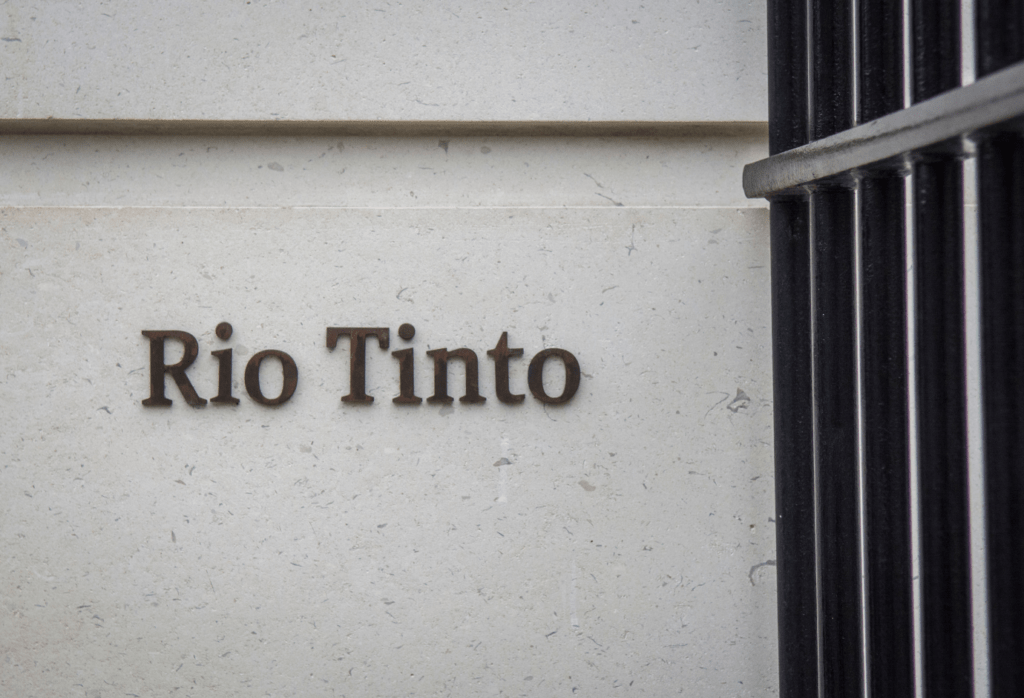A shocking report commissioned by Rio Tinto has found that almost fifty percent of its workers have been bullied, harassed, or racially discriminated against.
The report surveyed 10,000 employees in an external review of the global mining giant’s workplace culture — roughly a quarter of its 45,000-strong workforce.
It found up to 30 percent of females and roughly seven percent of males have experienced sexual harassment within their workplace. Twenty-one females reported actual or attempted rape or sexual assault over the last five years.
The report also highlighted a toxic culture of discrimination and racism, with almost 40 percent of men who identify as Aboriginal or Torres Strait Islander saying they had experienced racism, and a significant proportion of employees who work outside their country of birth claiming they experienced high rates of racism.
Rio Tinto Chief Executive Jakob Stausholm responded to the report, saying the results were “disturbing” and revelatory.
“I offer my heartfelt apology to every team member, past or present, who has suffered as a result of these behaviours,” he told Reuters Tuesday, after the report’s release. “This is not the kind of company we want to be.”
“The eye-opener for me was twofold. I hadn’t realised how much bullying exists in the company and secondly that it’s quite systemic – the three issues of bullying, sexual harassment and racism … that’s extremely disturbing.”
Stausholm, who has been Chief Executive for 12 months, insisted that his company would implement the 26 recommendations offered within the report, which were written by former Australian Sex Discrimination Commissioner Elizabeth Broderick.
For the report, Broderick and her team conducted over a hundred “group listening sessions” and 85 confidential one-on-one interviews with employees from across the globe.
Broderick, currently the UN Special Rapporteur for the Human Rights Council, reported that the majority of female respondents said they experienced “everyday sexism”, including being excluded from meetings, not being provided female toilets or “even being asked to take notes, get coffee, or even do a colleague’s washing.”
“Bullying is systemic, experienced by almost half of the survey respondents,” Broderick told The Guardian.
“Sexual harassment and everyday sexism occur at unacceptable rates. Racism is common across a number of areas.”
“[sexism] creates fertile ground for more serious misconduct, such as sexual harassment and sexual assault”.
“Women at Fifo worksites spoke of eating alone in their room to avoid harassment in the dining hall and the gym; of avoiding being out after dark; of bad lighting and poor security; and of harassing and even threatening behaviour from male colleagues when they were walking to their accommodation after work,” Broderick continued.
“Women also spoke of the lack of consequences when they reported these incidents; and of having to carry the burden of managing the situation themselves, rather than receiving support from management or human resources.”
The report also found that LGBTIQ+ employees experienced “significantly elevated rates of bullying, sexual harassment and racism”.
Broderick believes the bullying and discrimination they experience reveals a damaging culture of gender-conformity, where male employees make up almost 80 percent of the company’s workforce.
“Employees described expectations that they should ‘toughen up’ for ‘life in a global miner,’” Broderick said.
“Overall, their comments suggest that the same hyper-masculine norms and culture that can fuel everyday sexism and sexual harassment can also fuel heterosexism, making the inclusion and safety of employees who identify as LGBTIQ+ a priority in any cultural reform.”
Broderick believes Rio must give the same focus to psychological safety as it does towards physical safety, where the company “recognises that workplaces cannot be free from injury or critical incidents if employees do not feel confident to report unsafe practices or risks”.
“The project revealed that this confidence is not common amongst Rio Tinto employees for complex and sensitive interpersonal issues such as sexual harassment, racism and bullying,” she said.
“Similarly, employees participating in the listening sessions described a ‘culture of silence’ and negative impacts from reporting; of a lack of confidentiality; and of the subject of complaints being protected and even rewarded.”
The Rio report comes six months after Western Mineworkers Alliance released a report that revealed one in five women working on WA mining sites have experienced physical acts of sexual assault, and two thirds have experienced verbal harassment of a sexual nature.
Over half of the 125 women surveyed said they had experienced inappropriate staring or leering that made them feel intimidated and one in five had been offered improved conditions of employment or career advancement on account of them submitting to sexual favours, either explicitly or implicitly.
A 2020 report into sexual harassment conducted by Australian Human Rights Commission found that 74 percent of females working in the mining industry had experienced some sort of sexual harassment in the past five years.
Kellie Parker, the Australian CEO for Rio Tinto told Reuters that creating a safe, respectful work culture would “…encourage people of all backgrounds and diversity to thrive in our organisations.”
Despite these latest findings, Broderick commended Rio for making cultural changes over the past year, yet noted the company is “only at an early stage along this path”.
“In my interactions with the Rio Tinto leadership team, I have observed a strong desire for transformational change, as well as to make positive contributions to the societal shifts that we need to see,” she said.
“There is clear recognition, however, that new approaches are needed to solve these issues.”
In the report, Rio asserts it will focus on reforms that will create a safe and inclusive working environment, including increasing diversity within its workforce, and ensure the company’s remote mine sites are safe and transparent.


